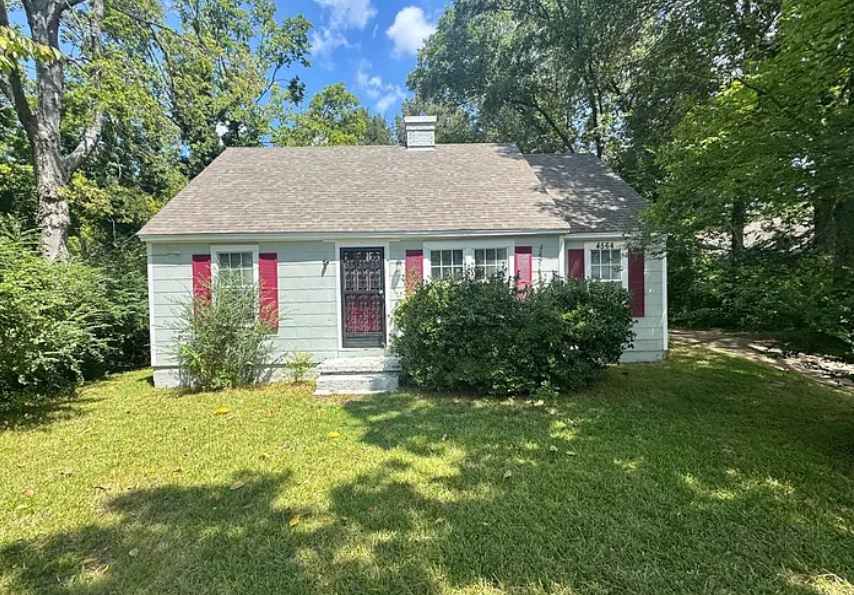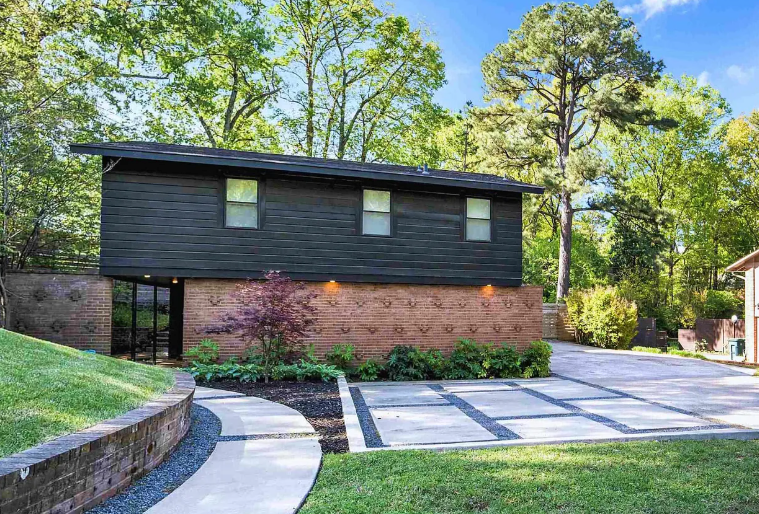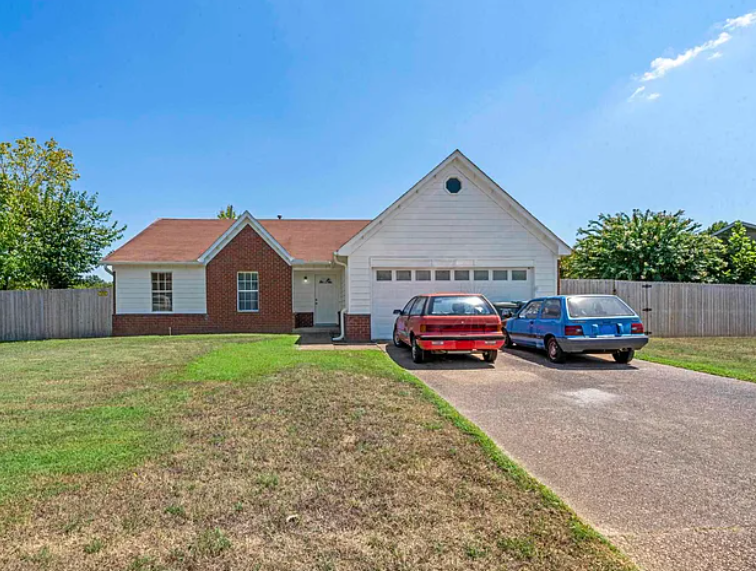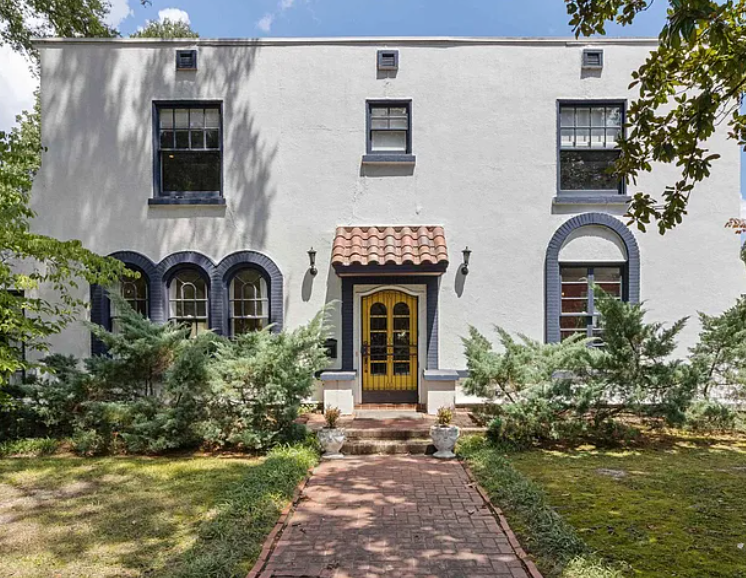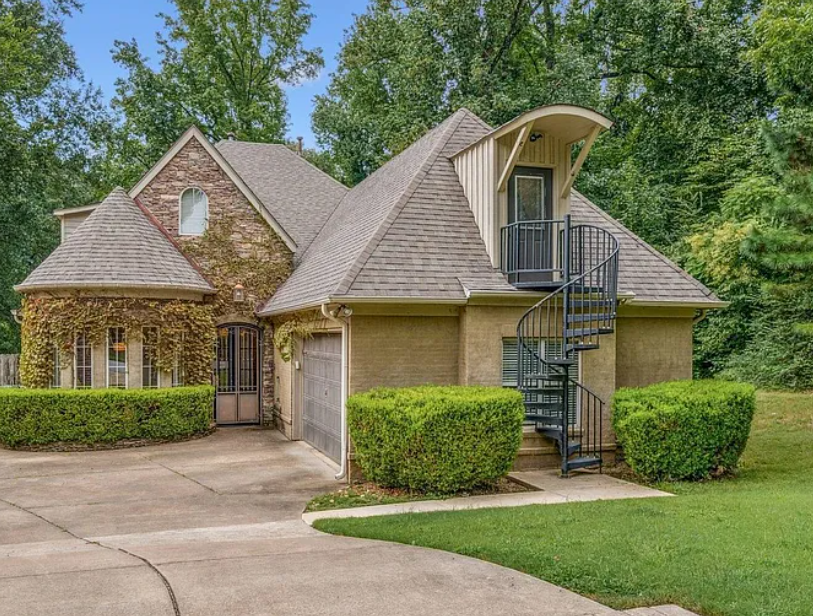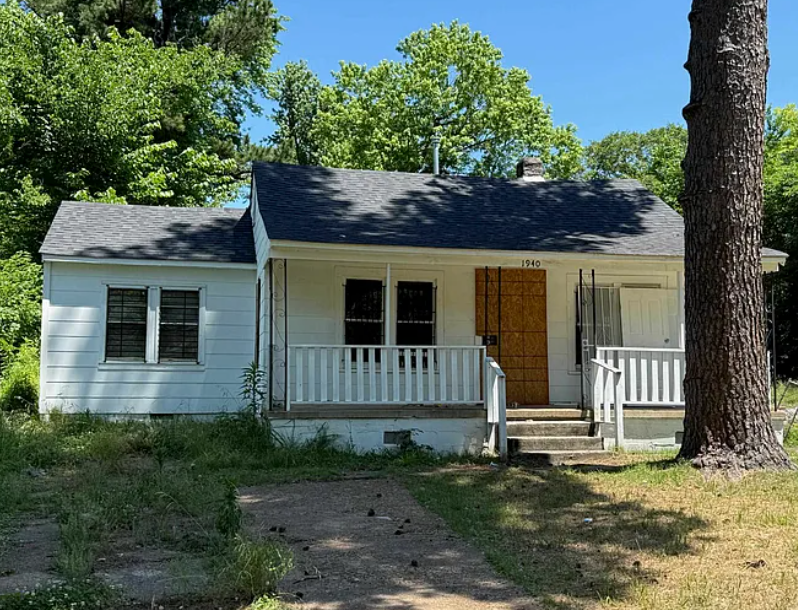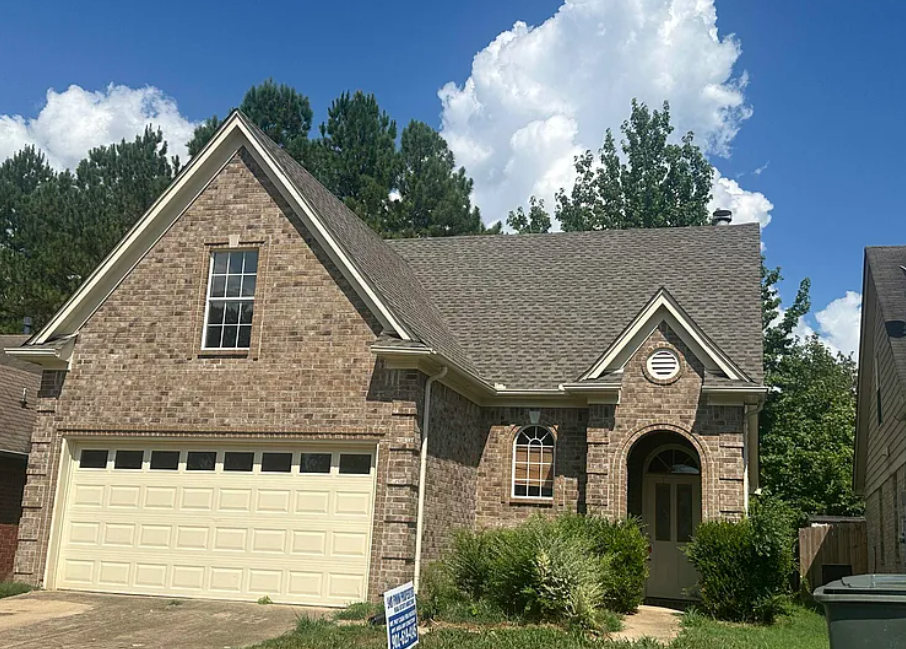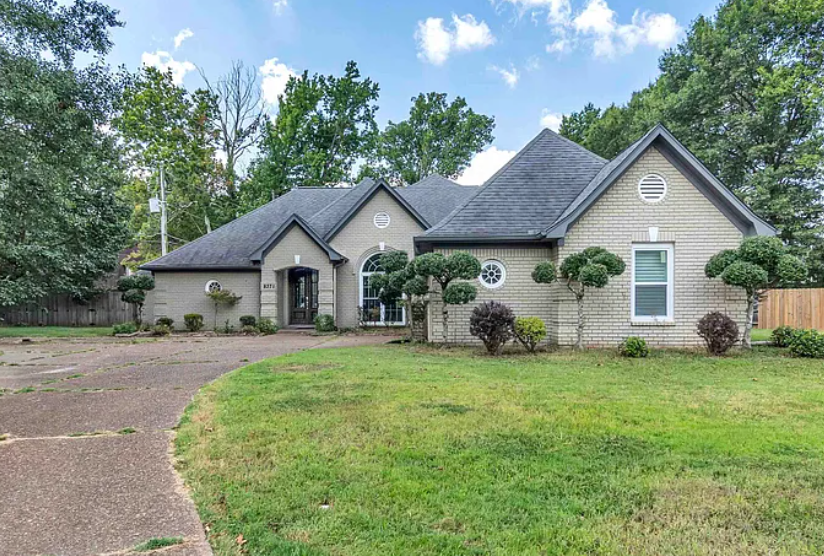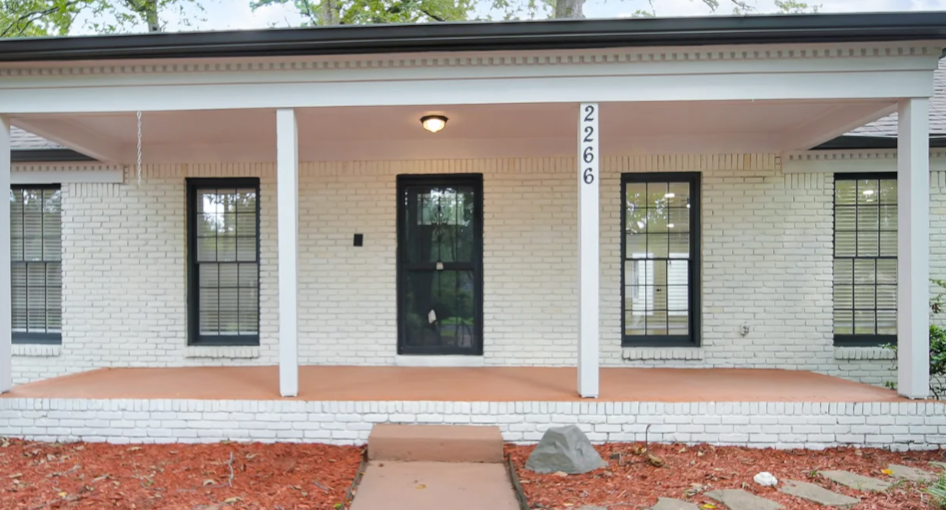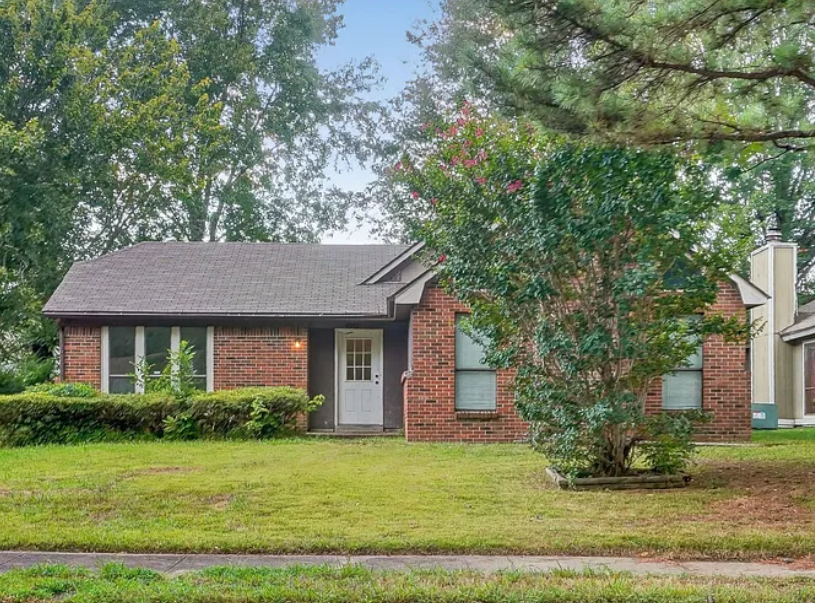The Complete Guide to Selling Your House Without a Realtor in Memphis

The decision to sell your house without a realtor in Memphis represents both an opportunity to save thousands of dollars in commission fees and a challenge that requires careful planning, market knowledge, and attention to legal requirements. As Memphis's housing market continues to evolve in 2025, with median home prices reaching $204,625 and homes selling in an average of 31 days, homeowners are increasingly exploring alternatives to traditional real estate representation that can maximize their net proceeds while maintaining control over the selling process.
For Sale By Owner (FSBO) transactions in Memphis have become more viable than ever, thanks to technological advances that provide homeowners with access to market data, marketing platforms, and legal resources that were previously available only to real estate professionals. However, success in FSBO sales requires understanding Tennessee real estate law, Memphis market dynamics, and the practical challenges of marketing, negotiating, and closing real estate transactions without professional representation.
The Memphis metropolitan area's unique characteristics, including its multi-state coverage spanning Tennessee and Mississippi, diverse neighborhood markets, and strong cash buyer presence, create both opportunities and complexities for FSBO sellers. Understanding these local factors, combined with proper preparation and realistic expectations, can help Memphis homeowners successfully navigate the FSBO process while avoiding common pitfalls that can delay sales or reduce net proceeds.
Understanding the Memphis FSBO Landscape
Memphis's real estate market in 2025 presents favorable conditions for FSBO sales, with several factors contributing to increased success rates for homeowners willing to take on the challenges of selling without professional representation. The market's somewhat competitive nature, with homes selling relatively quickly compared to national averages, means that well-priced properties can attract buyer interest without extensive marketing efforts.
The presence of numerous cash buyers in Memphis creates opportunities for FSBO sellers to connect with buyers who value speed and simplicity over traditional financing arrangements. Cash buyers often prefer working directly with homeowners, as it can streamline negotiations and reduce transaction complexity. This dynamic has made Memphis particularly attractive for FSBO sellers who prioritize quick sales over maximum pricing.
Memphis's affordability relative to national markets means that commission savings represent significant dollar amounts even on modestly priced homes. For a home selling at the Memphis median price of $204,625, avoiding a 6% commission saves approximately $12,277, while a 5% commission represents $10,231 in savings. These substantial savings provide strong motivation for homeowners to consider FSBO approaches, particularly when combined with Memphis's relatively straightforward real estate regulations.
The Memphis Area Association of Realtors (MAAR) provides market data and resources that FSBO sellers can access to understand pricing trends, comparable sales, and market conditions. This data availability helps level the playing field between FSBO sellers and those working with real estate professionals, though interpreting and applying this information effectively requires careful study and analysis.
Local title companies and real estate attorneys in Memphis have experience working with FSBO transactions, providing professional services that can help ensure legal compliance and smooth closings. This professional support network makes FSBO sales more feasible for homeowners who may lack experience in real estate transactions but are willing to invest time in learning the process.
Legal Requirements and Tennessee Real Estate Law
Tennessee real estate law establishes specific requirements for property sales that FSBO sellers must understand and comply with, regardless of whether they work with real estate professionals. These legal obligations protect both buyers and sellers while ensuring that transactions meet state standards for disclosure, documentation, and transfer procedures.
The Tennessee Residential Property Disclosure Act requires sellers to provide buyers with written disclosure of known material defects in the property. This disclosure must be provided before the buyer signs a purchase agreement and covers structural issues, mechanical systems, environmental hazards, and other conditions that could affect the property's value or desirability. FSBO sellers must prepare these disclosures carefully and honestly, as failure to disclose known defects can result in legal liability after closing.
Tennessee's real estate transfer requirements include proper deed preparation, title searches, and recording procedures that must be completed correctly to ensure valid property transfers. While FSBO sellers can handle some of these tasks themselves, most choose to work with title companies or real estate attorneys to ensure compliance with legal requirements and avoid potential problems that could delay or invalidate sales.
Property tax obligations in Memphis and Shelby County must be properly calculated and prorated at closing, with sellers responsible for taxes through the closing date and buyers assuming responsibility thereafter. Understanding these calculations helps FSBO sellers estimate their net proceeds accurately and avoid surprises at closing.
specialized guidance for divorce situations
Tennessee's disclosure requirements also extend to lead-based paint hazards in homes built before 1978, requiring specific disclosures and providing buyers with opportunities to conduct lead inspections. FSBO sellers must understand these federal requirements and ensure proper compliance to avoid legal complications.
Homeowners association (HOA) requirements, where applicable, must be properly disclosed to buyers, including current fees, special assessments, and governing documents. Memphis area properties subject to HOA governance require specific disclosure procedures that FSBO sellers must follow to ensure buyers receive required information.
comprehensive guide for inherited property sales
Step-by-Step FSBO Process in Memphis
Successfully selling your house without a realtor in Memphis requires following a systematic process that addresses pricing, marketing, negotiation, and closing procedures. Each step presents opportunities to save money and maintain control while requiring careful attention to detail and legal compliance.
Property Preparation and Pricing Analysis
The FSBO process begins with thorough property preparation and accurate pricing analysis based on current Memphis market conditions. Property preparation involves addressing obvious maintenance issues, enhancing curb appeal, and staging the home to appeal to potential buyers. While FSBO sellers may choose to handle these tasks themselves, investing in professional cleaning, minor repairs, and staging can significantly impact buyer interest and final sale prices.
current Memphis market analysis
Pricing analysis requires studying recent comparable sales in your Memphis neighborhood, understanding current market trends, and positioning your property competitively within the local market context. The Memphis Area Association of Realtors provides market data that can help inform pricing decisions, though FSBO sellers must learn to interpret this information effectively.
detailed cost analysis for repairs vs. as-is sales
Online valuation tools, including those provided by Zillow, Redfin, and other platforms, can provide starting points for pricing analysis, but these automated estimates should be supplemented with detailed analysis of recent sales of similar properties in your specific neighborhood. Memphis's diverse neighborhoods can have significantly different pricing dynamics, making local market knowledge crucial for accurate pricing.
Marketing and Exposure Strategies
Effective marketing represents one of the biggest challenges for FSBO sellers, as they must replicate the exposure that real estate professionals provide through Multiple Listing Service (MLS) access and professional marketing networks. However, several strategies can help FSBO sellers achieve broad market exposure without professional representation.
fast-sale alternatives to FSBO
Flat-fee MLS services allow FSBO sellers to list their properties on the MLS for a fixed fee, typically ranging from $300 to $800, providing exposure to real estate agents and their clients while maintaining control over the sales process. This exposure is crucial in Memphis, where many buyers work with real estate agents who search the MLS for available properties.
Online marketing platforms, including Zillow, Trulia, Realtor.com, and Facebook Marketplace, provide FSBO sellers with opportunities to reach potential buyers directly. High-quality photography and detailed property descriptions are essential for effective online marketing, and many FSBO sellers choose to invest in professional photography to ensure their properties present well in online listings.
neighborhood-specific buyer information
Traditional marketing methods, including yard signs, newspaper advertisements, and neighborhood flyers, can supplement online marketing efforts, particularly in Memphis neighborhoods where local buyers may be searching for properties. Open houses and private showings require careful scheduling and safety considerations, but can provide opportunities for direct buyer interaction and feedback.
Buyer Qualification and Negotiation
FSBO sellers must develop systems for qualifying potential buyers and managing negotiations without professional representation. Buyer qualification involves verifying financing pre-approval, understanding buyer timelines and motivations, and assessing the seriousness of purchase interest.
Pre-approval letters from reputable lenders provide evidence of buyer financing capability, though FSBO sellers should understand that pre-approval does not guarantee final loan approval. Cash buyers should provide proof of funds, typically in the form of bank statements or letters from financial institutions confirming available funds.
Negotiation strategies for FSBO sellers should focus on understanding buyer motivations, maintaining flexibility on terms while protecting essential interests, and documenting all agreements in writing. Memphis's somewhat competitive market means that well-priced properties may receive multiple offers, requiring FSBO sellers to evaluate and compare different proposals effectively.
Purchase agreement preparation requires careful attention to legal requirements and standard terms that protect both buyers and sellers. While FSBO sellers can use standard forms available from legal publishers or online sources, many choose to work with real estate attorneys to ensure proper contract preparation and legal compliance.
Closing Coordination and Legal Compliance
The closing process for FSBO sales requires coordination with title companies, lenders, and other professionals to ensure all legal requirements are met and the transaction closes successfully. FSBO sellers must understand their responsibilities in this process while working effectively with other parties to avoid delays or complications.
Title company selection should be based on experience with FSBO transactions, competitive pricing, and ability to handle the specific requirements of your sale. Memphis area title companies generally have experience with FSBO transactions and can provide guidance on required documentation and procedures.
Inspection negotiations often arise during the closing process, requiring FSBO sellers to understand common inspection issues in Memphis homes and develop strategies for addressing buyer concerns. While FSBO sellers are not required to make repairs identified during inspections, understanding negotiation options can help maintain transaction momentum while protecting seller interests.
Final walkthrough procedures and closing day coordination require attention to detail and clear communication with all parties involved in the transaction. FSBO sellers should understand their responsibilities for property condition, utility transfers, and document signing to ensure smooth closings.
Cost Analysis: FSBO vs. Traditional Sales
Understanding the true cost comparison between FSBO and traditional real estate sales requires analyzing both the obvious savings and the hidden costs that can affect net proceeds from property sales in Memphis.
Commission Savings and Direct Costs
The most obvious benefit of FSBO sales is avoiding real estate commissions, which typically range from 5% to 6% of the sale price in Memphis. For a home selling at the median price of $204,625, this represents savings of $10,231 to $12,277, providing strong financial motivation for FSBO approaches.
However, FSBO sellers incur direct costs that are typically covered by real estate professionals in traditional sales. These costs include MLS listing fees ($300-$800), professional photography ($200-$500), marketing materials and advertising ($200-$1,000), and legal or title company fees for contract preparation and review ($500-$1,500).
Attorney fees for FSBO transactions typically range from $500 to $1,500, depending on the complexity of the transaction and the level of legal support required. While this represents an additional cost compared to traditional sales where agents handle most legal coordination, the legal protection and peace of mind often justify this expense.
Time Investment and Opportunity Costs
FSBO sales require significant time investments that sellers must consider when evaluating the true cost of avoiding professional representation. Successful FSBO sales typically require 20 to 40 hours of seller time for market research, property preparation, marketing, showing coordination, and transaction management.
For sellers with high hourly earning potential, the time investment required for FSBO sales may exceed the commission savings, particularly if the additional time investment delays the sale or results in lower sale prices. However, sellers with flexible schedules or those who enjoy the process may find the time investment worthwhile.
Marketing and showing coordination can be particularly time-intensive, requiring FSBO sellers to be available for buyer inquiries, schedule and conduct property showings, and manage follow-up communications. This ongoing commitment can be challenging for sellers with demanding work schedules or other obligations.
Risk Factors and Potential Costs
FSBO sales involve risks that can result in additional costs or reduced sale prices if not managed properly. Legal compliance issues, pricing mistakes, and negotiation errors can all impact the financial success of FSBO transactions.
Pricing errors represent one of the most significant risks for FSBO sellers, as overpricing can result in extended marketing periods and ultimately lower sale prices, while underpricing leaves money on the table. Memphis market knowledge and careful comparable analysis can help minimize pricing risks, but the lack of professional market expertise can be costly.
Legal compliance issues can result in transaction delays, buyer withdrawal, or post-closing liability if disclosure requirements are not met properly. Working with experienced real estate attorneys can help minimize these risks, though the additional legal costs should be factored into FSBO cost calculations.
Negotiation mistakes can cost FSBO sellers thousands of dollars if they accept unfavorable terms or fail to protect their interests effectively during contract negotiations. Understanding common negotiation strategies and having legal support available can help minimize these risks.
Memphis-Specific FSBO Considerations
Selling your house without a realtor in Memphis involves several considerations specific to the local market and regulatory environment that can impact both the process and the outcome of FSBO transactions.
Multi-State Metropolitan Area Implications
Memphis's position in a multi-state metropolitan area means that some buyers may be relocating from Mississippi, Arkansas, or other states, potentially requiring additional coordination and communication to ensure successful transactions. FSBO sellers should be prepared to work with out-of-state buyers and understand any additional requirements that may apply.
Title companies and attorneys familiar with multi-state transactions can provide valuable support for FSBO sellers dealing with buyers from different states, ensuring that all legal requirements are met and potential complications are avoided.
Neighborhood Market Dynamics
Memphis's diverse neighborhoods have distinct market characteristics that FSBO sellers must understand to price and market their properties effectively. East Memphis, Midtown, Germantown, and other areas attract different buyer demographics and have varying price points and marketing strategies that work best.
Understanding your specific neighborhood's buyer preferences, typical marketing channels, and pricing trends can help FSBO sellers develop effective strategies for attracting qualified buyers and achieving successful sales.
Cash Buyer Opportunities
Memphis's strong cash buyer presence creates opportunities for FSBO sellers to connect with investors and other cash buyers who value direct communication and streamlined transactions. Cash buyers often prefer working with FSBO sellers because it can simplify negotiations and reduce transaction complexity.
Developing relationships with local cash buyers and understanding their investment criteria can provide FSBO sellers with additional marketing channels and potential backup options if traditional buyer financing falls through.
Technology Tools and Resources
Modern technology provides FSBO sellers with access to tools and resources that can help level the playing field with real estate professionals, making successful FSBO sales more achievable than ever before.
Online Marketing Platforms
Zillow Premier Agent, Realtor.com, and other major real estate websites offer FSBO listing options that provide broad exposure to potential buyers. These platforms typically charge fees ranging from $10 to $50 per week but can provide valuable exposure to buyers searching online.
Social media marketing through Facebook, Instagram, and other platforms can help FSBO sellers reach local buyers and generate interest in their properties. High-quality photos and engaging descriptions are essential for effective social media marketing.
Valuation and Market Analysis Tools
Online valuation tools provide starting points for pricing analysis, though FSBO sellers should supplement these automated estimates with detailed analysis of recent comparable sales and current market conditions.
Market analysis platforms, including those provided by real estate websites and local MLS systems, can help FSBO sellers understand pricing trends, inventory levels, and buyer activity in their specific neighborhoods.
Document Preparation and Legal Resources
Online legal document services provide access to standard purchase agreements, disclosure forms, and other legal documents required for real estate transactions. While these resources can be helpful, FSBO sellers should consider having important documents reviewed by real estate attorneys to ensure proper completion and legal compliance.
Electronic signature platforms can streamline document execution and reduce the time required for contract negotiations and closing coordination.
When to Consider Alternatives to FSBO
While FSBO sales can be successful in Memphis, certain situations may warrant considering alternatives, including traditional real estate representation or cash buyer options.
Complex Property or Legal Issues
Properties with complex title issues, environmental concerns, or unusual characteristics may benefit from professional representation to ensure proper handling of potential complications. Real estate professionals have experience dealing with these issues and can help navigate complex transactions more effectively.
Time Constraints and Availability
Sellers with limited time availability or urgent relocation needs may find that the time investment required for successful FSBO sales exceeds their capacity. In these situations, traditional representation or cash buyer options may provide better solutions.
Market Conditions and Competition
In highly competitive markets or during periods of declining prices, professional representation may provide advantages in pricing, marketing, and negotiation that justify the commission costs. Understanding current Memphis market conditions can help sellers evaluate whether FSBO approaches are likely to be successful.
Conclusion: Making the FSBO Decision in Memphis
Selling your house without a realtor in Memphis can provide significant financial benefits for homeowners willing to invest the time and effort required for successful FSBO transactions. The Memphis market's characteristics, including its affordability, diverse buyer base, and strong cash buyer presence, create favorable conditions for FSBO sales when approached with proper preparation and realistic expectations.
Success in FSBO sales requires understanding Tennessee real estate law, Memphis market dynamics, and the practical challenges of marketing, negotiating, and closing real estate transactions without professional representation. While the process involves risks and requires significant time investment, the potential savings of $10,000 or more in commission fees provide strong motivation for many Memphis homeowners.
The decision to pursue FSBO sales should be based on careful evaluation of your specific situation, including your available time, market knowledge, and comfort level with real estate transactions. For homeowners who choose to proceed with FSBO sales, proper preparation, professional legal support, and realistic expectations can help ensure successful outcomes while maximizing net proceeds from property sales.
As Memphis's real estate market continues to evolve, FSBO sales will likely remain viable options for homeowners seeking to maximize their net proceeds while maintaining control over the selling process. Understanding the opportunities and challenges involved in FSBO sales helps Memphis homeowners make informed decisions about the best approach for their specific circumstances.
Request Your Offer Now
